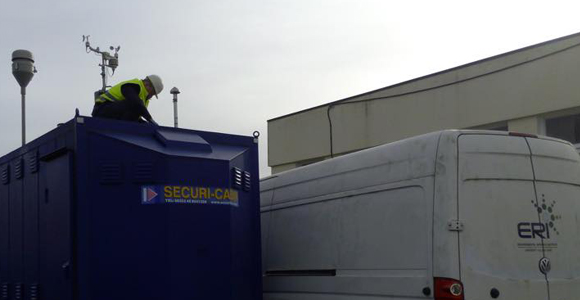In This Section
SAPPHIRE in the Media

Irish Examiner focus on SAPPHIRE results.
Ongoing research at The Centre of Research into Atmospheric Chemistry made the news again today. See the link below for the full article with focus on the CRAC based and EPA funded project, SAPPHIRE.
A move to extend the ban on smoky coal to a leading tourist town, where air pollution far exceeds EU and World Health Organisation limits, has been resisted by councillors.
A motion by South Kerry Independent councillor Michael Gleeson that the public in Killarney be consulted on whether they wanted such a ban failed to find support.
At a meeting of Killarney Municipal Authority, councillors Donal Grady and Danny Healy-Rae said it was the “wrong time” for a ban, because smokeless coal was more expensive than other coal and could mean increased hardship for people.
The general view at the meeting was that the Government should ensure smokeless coal is cheaper before imposing a ban.
Mr Gleeson said the health of people with certain medical conditions improved greatly in areas where the ban had been introduced.
However, he agreed that smokeless coal should be cheaper if people were obliged to burn it.
Under a 2012 review by the Department of the Environment, Killarney was excluded from the ban, as its population did not exceed 15,000.
However, the department has since indicated there may be scope to include towns such as Killarney, but that would require new legislation.
The level of particulate matter, which has been linked to respiratory diseases and cancer, soars at night in many towns during the winter due to the burning of solid fuels.
Research by UCC scientists shows air pollution levels exceed accepted EU limits in Killarney, where small particulate pollution levels ranged up to 160µg/m³ at night late last year. This compares to an EU limit of 25 µg/m³ and a World Health Organisation limit of 10µg/m³. Air pollution in Killarney is 10 times higher during winter nights than it is during the day, the researchers discovered.
Particulate matter comprises tiny, airborne particles that can aggravate asthma or respiratory symptoms and, in the long term, lead to death from respiratory cardiovascular issues or lung cancer.
The Asthma Society has called on governments North and South to introduce an immediate all-Ireland ban on smoky coal, saying the measure would save up to 2,000 lives a year.
However, Dr John Wenger, of UCC’s centre for research into atmospheric chemistry, said that a ban on smoky coal may not be enough as peat and wood also produced similar amounts of particulate matter when burned.
Centre for Research into Atmospheric Chemistry
Ionad Taighde Um Ceimice Atmaisféarach
Contact us
Lab B1, Kane Building, University College Cork, T12 YN60.
